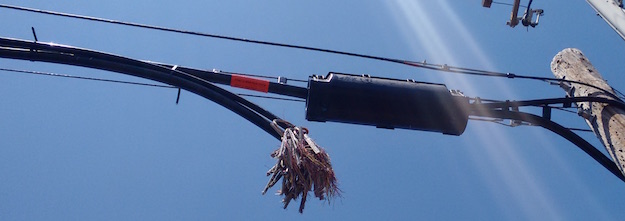
If your local cable system is in bad shape, you might be in luck. According to an analysis done by Daniel Frankel at FierceCable, the economics of upgrading cable systems that were last upgraded (or not) in the 1990s to the next generation of service favors replacing coaxial cable with a full fiber to the home build. That explains some or all of the reasoning behind Altice’s decision to convert some of the Suddenlink and Cablevision systems it acquired to FTTH.
As quoted in FierceCable, Robert Gessner, president of Massillon Cable TV (MCTV), a small cable system in Ohio, explained that earlier hybrid fiber coax upgrades were not done with broadband service in mind, which meant more coax and less fiber…
“We debated it for a long time,” he said. “The decision starts to some extent with our last upgrade. When we transitioned our plant from coax to HFC in 1995, we built it for television, and we built out the largest node sizes we could”…
“If we had waited five or six years and did our HFC upgrade in the early 2000s, after cable modems became ubiquitous, we would have built smaller nodes,” he explained. “If you did your HFC upgrade early, you have a lot of fiber to run.”
Consequently, DOCSIS 3.1 upgrades, such as Comcast is beginning to roll out, aren’t much cheaper than a fiber build, which delivers more long term benefit. MCTV is offering 100 Mbps down and up to homes with fiber now, and has the plant to offer even faster service in the future, if it chooses.
That could be good news for rural Californian communities where independently-owned cable systems can still be found. Whether it’s good news for Californians who rely on the scattering of small systems Altice purchased from Suddenlink is another question, though. Altice will be factoring competition and economies of scale into its FTTH upgrade decisions, and its acquisitions are concentrated in the northeastern U.S., where it goes head to head with Verizon fiber. The math is likely to come out differently in California, where Altice is thin on the ground and faces little threat from Frontier and AT&T.
